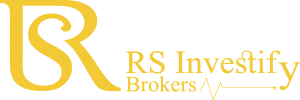Frequently asked questions
What is a Forex broker?
A Forex broker is a company or individual that enables traders to buy and sell different currencies. These brokers act as intermediaries between buyers and sellers, typically earning income through commissions or spreads.
What is the concept of spread?
The spread is the difference between the ask price (buy price) and the bid price (sell price) of a currency pair. Spreads can be fixed or variable, and brokers earn income through this price difference.
What is leverage and how does it work?
Leverage is a tool that allows traders to conduct larger trades with a small amount of capital. For example, a leverage of 1:100 means that with $1 of capital, you can control a $100 trade. While leverage can increase profits, it can also magnify losses.
How can we open a trading account?
To open a trading account, you usually need to fill out a registration form, provide identification documents such as a passport or national ID card, and complete identity verification. Some brokers may require additional documents like a bank statement or utility bill to verify your address.
Is it possible to trade in the Forex market 24 hours a day?
Yes, the Forex market operates 24 hours a day, 5 days a week. This market runs continuously from the opening of the Sydney market in Australia to the closing of the New York market in the United States.
What is a demo account and how can it be used?
A demo account is a trial trading account that allows traders to experience trading without using real money. These accounts are very useful for getting familiar with the trading platform, testing strategies, and enhancing trading skills.
How are commissions and trading fees calculated?
Commissions and trading fees may vary based on trade volume, account type, and broker conditions. Some brokers have higher spreads but do not charge additional commissions, while others may offer lower spreads but charge a commission.
How can we manage risks in Forex trading?
To manage risks, it's important to use risk management tools such as stop loss and take profit orders, set appropriate leverage, study the market and conduct technical and fundamental analysis, and have a consistent trading strategy.
What is margin and how does it work?
When do spreads change?
Spreads can change at various times, particularly during major economic news releases, market openings or closings, or when market liquidity decreases. Variable spreads usually widen during periods of high volatility.
Which currency pairs are popular for trading in Forex?
Some popular currency pairs include EUR/USD (Euro/US Dollar), GBP/USD (British Pound/US Dollar), USD/JPY (US Dollar/Japanese Yen), and AUD/USD (Australian Dollar/US Dollar). These pairs are favored due to their high trading volume and liquidity.
Can I trade Forex on mobile devices?
Yes, most Forex brokers offer mobile apps that allow traders to access and trade on their accounts using smartphones or tablets.
How much capital is needed to start trading in Forex?
The amount of capital needed to start trading in Forex can vary depending on the broker and the type of account. Some brokers allow you to start with as little as $100 or even less, while others may require a higher minimum deposit.
Is Forex a safe market for investment?
The Forex market, like any other financial market, comes with risks. Risk management, awareness of market volatility, having appropriate trading strategies, and using risk management tools can help mitigate these risks.


